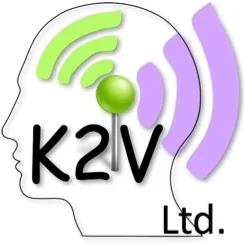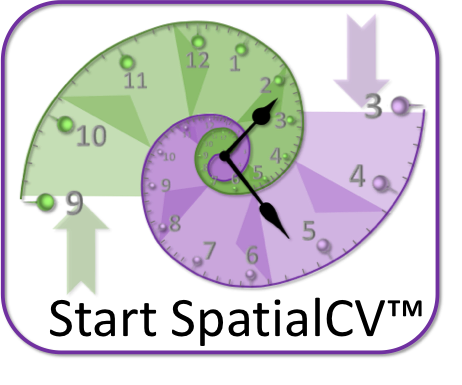It comes as no surprise that when enterprises invest many millions of dollars to develop and acquire proprietary knowledge, that same knowledge is seen as a value component underpinning competitive advantage. We hold on to knowledge for as long as possible to maximise competitive advantage but partial loss in the oil & gas sector always occurs through shareholder reports, SEC rules on reserves reporting, regulator set declarations, partnerships, trading, staff turn-over etc.. Few enterprises deliberately share knowledge with the expectation of acquiring more knowledge to increase competitive advantage. It is not immediately apparent why partial loss of knowledge is more damaging to your business than controlled releases through knowledge sharing. But as a rule of thumb, what you know will always get you more of what you want.
Evolving knowledge
A number of articles have been posted in LinkedIn over the last two years to demonstrate how crowd-sourcing knowledge can be used to convert knowledge into value in the oil & gas sector. The emphasis has to date been largely applied to exploration New Venture growth in frontier areas on the far left of the chart above. When exploration for hydrocarbon resources matures from frontier basins through to harvested petroleum systems, that progression fundamentally alters the commercial landscape. Operators who specialise in frontier exploration may be naturally replaced by others whose business strengths suit near infrastructure related exploration as the business focus shifts to reflect asset maturation. For much of the productive life of a petroleum system, there is no common understanding of value between operators. Active competition drives activity that leads to investment and value creation in frontier, emerging and core assets. As more data and information become available to a wider college of opinion, the dynamics of exploration subtly shift from actively competitive to tacitly collaborative. As petroleum systems approach their perceived end of productive lives, a new dynamic emerges that challenges the conventional approach to knowledge sharing: the common need for new opportunities to extend the life of the existing facilities and infrastructure. The jump in value that could come from new opportunities often require leaps in perception rather than just new data.
Value adding perceptions may be geological (e.g. the existence of a seal in aeolian deposits of the Haima in Oman), engineering (e.g. what constitutes deep-water or drilling depth limits for oil production in the Gulf of Mexico) or commercial (e.g. redefining what is meant by “stranded gas” in NW Shelf of Australia). Setting new perceptions that can change your business require breadth and depth of knowledge; re-establishing what is but also what could be. No isolated enterprise, however dominant in its understanding of an area or its access to data, can see the entire picture of a petroleum system that has been picked over by many operators for years, however robust the method of future potential assessment. What is needed is “far greater constructive collaboration between operators” across the business life-cycle [1] to open up the full potential of a petroleum system. In the last few months, we have explored the dimensions of collaboration through knowledge sharing as an exchange of opinion between like-minded individuals about common value drivers [see references 2, 3 & 4]. The articles identify a natural tipping-point when an enterprise needs to decide whether to wind down the asset (dilute, divest or decommission) or consider investing in renewed growth (rejuvenation). If the decision is to decline, then there is usually little residual value in safe-guarding knowledge. If the decision is to attempt to rejuvenate the portfolio, then the tipping-point defines the moment when sharing knowledge may become more advantageous to your business than retaining it internally. Either way, knowledge sharing has the potential to grow your business. The articles describe how knowledge sharing would work in practice and how that can lead to the rejuvenation of tired portfolios. This series of articles culminates with a presentation at PETEX in November to demonstrate how rejuvenation can be applied to the UKCS.
The initiative to share knowledge is motivated by a desire to reduce waste and extend the lives of conventional petroleum systems. The articles not only demonstrate how to rejuvenate tired petroleum systems but provide the means to achieve it in a way that is free to all knowledge holders, with potential compensation elements.
[1] Wood, Ian, 2014 – UKCS maximizing recovery review: Final report. https://www.google.co.uk/url?sa=t&rct=j&q=&esrc=s&source=web&cd=1&cad=rja&uact=8&ved=0ahUKEwjoyuSe7a3bAhVJe8AKHeKDC9oQFggnMAA&url=https%3A%2F%2Fwww.ogauthority.co.uk%2Fmedia%2F1014%2Fukcs_maximising_recovery_review.pdf&usg=AOvVaw2Qsus4qLktyfl-kBp77QTq
[2] Loftus, Guy W.F., Burgess, Peter., Neal, Simon., Scardina, Allan D., 2018 - Petroleum systems exploration: when is it ever advantageous for your business to share what you know? [GEO ExPro in. prep]
[3] Loftus, Guy W.F., Burgess, Peter., Neal, Simon., Scardina, Allan D., 2018 - How to rejuvenate exploration in prolific but tired petroleum systems [GEO ExPro Vol. 15, no. 5 in. press]
[4] Loftus, Guy W.F., Neal, Simon., Scardina, Allan D., 2018 - Accelerating North Sea development through open collaborative exploration. [PETEX in. press]



